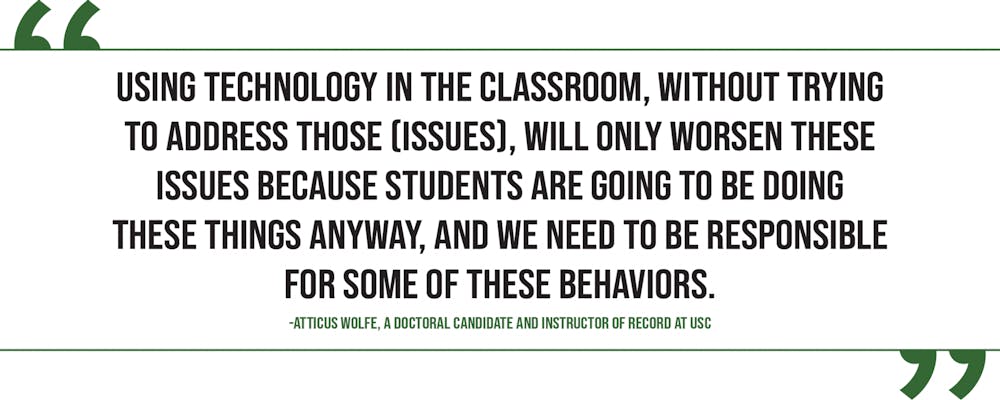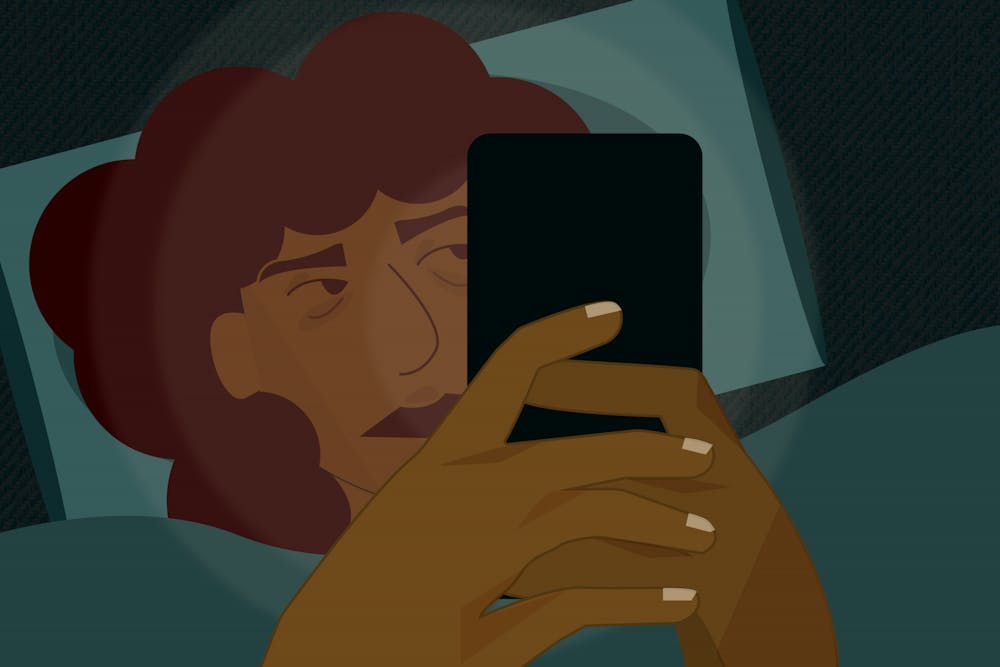In the last decade, there has been a plethora of technological advancements, leading to a shift in the way we use and value our phones and social media. When it's time to face reality, people who are more reliant on electronic technology tend to struggle more than those off-the-grid due to increased mental distress when constantly being on the phone.
Smartphones have drastically changed how we view the world and ourselves. Along with smartphones eventually came social media, which has given people an endless amount of new opportunities.
Social media has allowed everyone to connect with anyone and build communities and friendships that would otherwise never be possible, but there can also be negatives to social media, according to Healthaid.
Social media also allows an outlet for those to disconnect and isolate themselves from the rest of the world. According to an article from Frontiers in Psychiatry, people with excessive phone usage tend to use social media as a form of escaping from the real world and avoiding certain thoughts, feelings and memories.
Excessive phone usage doesn’t only give people a way to distract themselves from the world, it can also cause depression and anxiety as well as a connection to a disruptive sleep pattern and media use, according to Frontiers in Psychiatry.
Atticus Wolfe, a doctoral candidate and instructor of record at USC, said electronic technology disadvantages includes concerns surrounding spikes of anxiety levels and depression, body image issues and disordered eating behaviors. It can also lead to someone internalizing external problems, such as feeling guilty for the bad in the world.
"Using technology in the classroom without trying to address those (issues) will only worsen these issues because students are going to be doing these things anyway, and we need to be responsible for some of these behaviors," Wolfe said.

It is easy to get drawn into what the media is telling you is right or wrong, and it is also easy to allow the media to make decisions for you. For example, toxic and unrealistic beauty standards appear on multiple social media platforms. Women tend to feel unworthy if they don't look or act like the other girls they see online projecting these standards.
Sometimes, the most important thing to do is to let go of your phone and look around at the real world compared to what you see in the media. Generations that have grown up with social media in their lives don’t know how to live without their phones that may provide them with comfort.
“Reliance is not necessarily a bad thing. We all rely on many, many, many things in a day," Wolfe said. "(Students) have become more reliant on learning things through technological means.”
We all rely on something to get through the day, whether it is a McDonald’s Diet Coke or scrolling through TikTok for an hour just to feel relaxed. The biggest issue with reliance is not being able to address it. Having conversations about accurate data practices and discussions around social media platforms is the responsibility of an educator, according to Wolfe.
Students need to refresh themselves on the mental consequences that could arise if they don’t understand the dangers behind the media, despite the tremendous amount of positives that come with it.
For example, it has given those who have other important responsibilities the chance to be a student. Wolfe said he uses distance learning to allow flexibility in his classroom and give students the ability to learn even if they can't physically be there.
But too much of one thing can lead to too little of something else. We tend to drown ourselves in our phones and forget about the rest of our responsibilities.
Sometimes, it feels as though if you are not chronically online or up to date with the latest trends and social media buzz, you are not "cool" enough. The truth is, you are your own worst critic. We compare ourselves to everything we see online because it looks so perfect, and we are not.
There is a long list of pros and cons when it comes to social media, but the bottom line is that too much of it can lead to the loss of valuable time. If we continue to get lost in our phones and develop more mental distress, we will lose the connections that are out in the world.
As a generation that has seen electronic technology and social media grow into what it is today, it is crucial to understand the mental consequences that arise from smartphones and social media.

